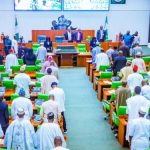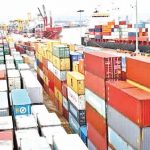Nigeria’s importation of solar panels plunged by 89% in the first quarter of 2025, signaling a major policy shift toward local manufacturing and energy independence. The National Bureau of Statistics (NBS), in its latest Foreign Trade Statistics, reported that solar panel imports dropped from ₦237.31 billion in Q4 2024 to just ₦125.29 billion in Q1 2025.
This steep decline follows a federal government push to reduce reliance on foreign imports in the renewable energy sector. In March, a formal announcement halted solar panel importation to promote local production, anchored on Presidential Executive Order No. 5.
The Managing Director of the Rural Electrification Agency (REA), Abba Aliyu, revealed that Nigeria’s solar panel manufacturing capacity has surged from 110 megawatts (MW) to 600MW. Key contributors to this growth include LPV in Lagos (100MW), JRV in Abuja (250MW), OandO (120MW), and GridConnect in Idu, Abuja (150MW, nearing completion). Aliyu also noted a fivefold increase in renewable energy service providers, now numbering over 50.
“This marks a significant turning point. We’re changing the narrative,” he said.
Minister of Science and Technology, Uche Nnaji, underscored Nigeria’s readiness to meet its own solar infrastructure needs, citing the contributions of the National Agency for Science and Engineering Infrastructure (NASENI) and local access to lithium—crucial for battery production. He added that Nigeria is not only assembling solar panels but also processing its own raw materials for storage solutions.
“We are adding value to our resources. The lithium we have will be used to produce batteries for solar systems and electric vehicles,” he stated.
The federal government’s broader clean energy agenda also includes expanding off-grid mini-grid solutions to electrify schools, hospitals, and households. Minister Nnaji, who disclosed that he has lived off-grid for over three years, believes widespread adoption of such systems across Nigeria is imminent.
The dramatic drop in solar imports represents more than a trade statistic—it reflects a deliberate pivot toward building a self-sustaining green economy. As domestic manufacturing grows and policy support deepens, Nigeria is positioning itself as a leader in Africa’s renewable energy revolution.










